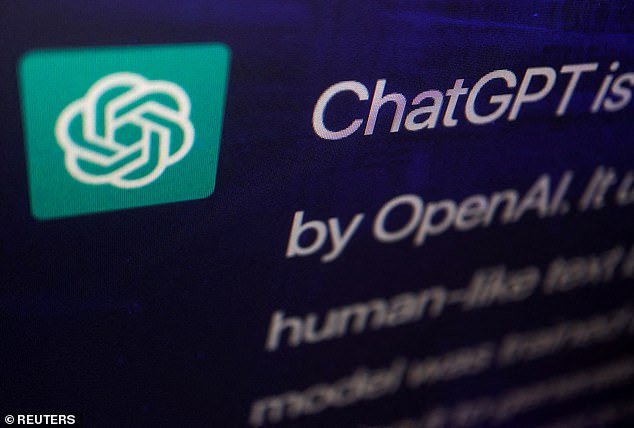A toddler whose symptoms baffled 17 doctors for three years is finally diagnosed with a rare condition… by ChatGPT
A boy was diagnosed with a rare condition by ChatGPT after visiting more than a dozen doctors for three years.
Alex was four years old when he started experiencing chronic pain. His mother, Courtney, said that if he didn’t take painkillers every day, he would have “massive” meltdowns.
Shortly after the onset of his pain, Alex’s personality began to change. He became moody and tired, started chewing things and had outbursts. Courtney said his normally sweet demeanor turned into “a hot-tempered crazy person who didn’t exist the rest of the time.”
When Courtney and Alex visited a dentist, the doctor suspected he was grinding his teeth and referred the family to a specialist, who placed an expander in Alex’s mouth to help him breathe better at night.
Although it seemed like a solution at first, more symptoms appeared. Alex stopped growing, which a pediatrician blamed on the pandemic. He also dragged his left foot while walking and developed severe headaches.
Courtney, who asked that her last name not be used to protect her family’s privacy, searched for answers for three years and consulted 17 doctors. Finally, she asked ChatGPT, which research has shown can be right up to 72 percent of the time when it comes to medical diagnoses.
The chatbot came back with a diagnosis of tethered cord syndrome, a condition that causes the spinal cord to abnormally attach to the spinal canal, restricting blood flow as children grow. This leads to numbness, pain, muscle weakness and problems with motor control.
When she saw the chatbot’s diagnosis, Courtney realized that “it made a lot of sense.”
Alex started suffering from pain, mood swings and sleep problems from the age of four. It took three years and the use of ChatGPT to find his diagnosis of spina bifida and tethered cord syndrome

Although ChatGPT does not have a medical degree, recent research shows that it can come up with a diagnosis as often as doctors in training.
‘We’ve seen so many doctors. At one point we ended up in the emergency room. I kept pushing,” she told Today.com. “I actually spent the night on the (computer) … going over all this stuff.”
Courtney went through Alex’s test results line by line and entered them into ChatGPT. The chatbot came back with tethered cord syndrome.
Tethered cord syndrome occurs when the spinal cord attaches to the spinal canal. It mainly affects children, and as affected children grow, the spinal cord stretches and restricts blood flow.
According to the Cleveland Clinic, symptoms include difficulty walking, discolored patches of skin, numbness in the legs and back, severe leg or back pain, scoliosis, problems with bladder and bowel control, and loss of muscle mass.
Estimates say it occurs in less than one percent of American births each year.
Alex’s case was caused by spina bifida, which occurs when the spine that protects the spinal cord does not form and close normally. Alex has the smallest form of the condition, spina bifida occulta, which causes a small hole in the spine but no nerve damage.
This form is more difficult to diagnose because the defect is smaller and harder to see. Courtney said Alex’s defect looks more like a mole on the top of his buttocks that no one has seen.
According to the Centers for Disease Control and Prevention (CDC), approximately 1,400 babies in the U.S. are born with spina bifida each year. About 1,000 babies are born with it in Britain every year, the British Pregnancy Advisory Service estimates.
Although ChatGPT does not have a medical degree, recent research shows that it can come up with a diagnosis as often as doctors in training.
A study published last month by researchers at Mass General Brigham in Boston found that ChatGPT found the correct diagnosis 72 percent of the time, about the same rate as a general practitioner. Experts suggest that older doctors are usually right 95 percent of the time.
Additionally, a study published earlier this year found that ChatGPT could pass the country’s gold standard medical exam, the three-part Medical Licensing Exam (USMLE), with a score between 52.4 and 75 percent.
The passing threshold is approximately 60 percent.
Research from the University of California San Diego found that ChatGPT provided higher quality answers and was more empathetic than real doctors.
The AI showed empathy 45 percent of the time, compared to five percent among doctors. It also provided more detailed answers 79 percent of the time, compared to 21 percent for doctors.
Additionally, ChatGPT was preferred 79 percent of the time, compared to 21 percent for physicians.
After ChatGPT diagnosed Alex, he had surgery on his tethered spinal cord earlier this summer while he is still recovering. He is expected to recover quickly.
The little boy is now “happy go lucky,” his mother said, and enjoys sports and spending time with other children.
“There’s no one to connect the dots for you,” Courtney said. “You have to be your child’s advocate.”
